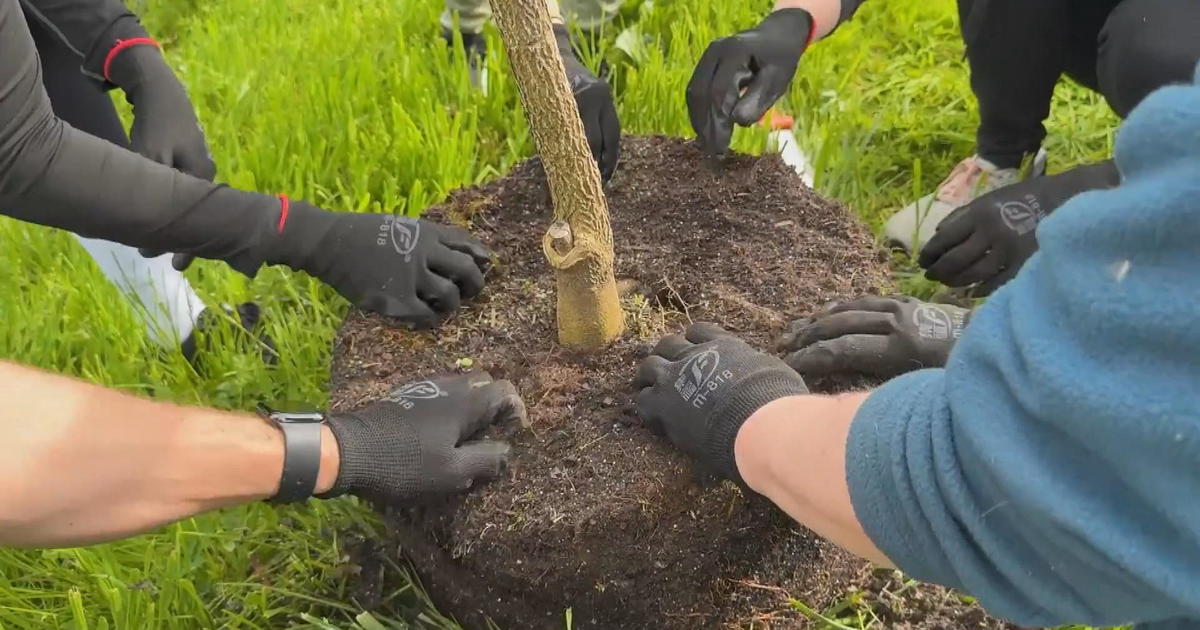Angie's List: Car Maintenance
By Jim Donovan
PHILADELPHIA (CBS) - Car trouble is a headache none of us want to deal with. But when your vehicle needs immediate attention, you want to make sure you're leaving it in the hands of someone you trust.
In this week's Angie's List report Jim Donovan explores some things you should know when it comes to taking care of your car and choosing a good mechanic.
One of the most important things you can do when it comes to caring for your car is doing your homework in advance.
"No one likes to hear this, but read the owner's manual for your car. It's amazing what it can tell you about your car and that will also help you be more educated when you are talking to your mechanic. If they are recommending something that is counter to the manual it's a time for you to say wait, maybe i need a second opinion," said Angie's List founder, Angie Hicks.
But if you trust your mechanic, your less likely to think he's steering you wrong so try to choose one before you have a big problem.
"Find a mechanic and test them out on small things, oil changes, and just basic items so they can develop a comfort level and the mechanic can get to know the car," said Hicks.
And remember that basic maintenance won't just build a relationship with your mechanic. It can also go a long way to keep your car running smooth.
"The most important item that we would consider is the simplest one too and that is just getting your oil changed on a regular basis
And we see it day in and day out people who are rigorous about it get it changed every 3-5 thousand miles versus the people that go longer intervals and we rip open, err pull open the engines and look inside you can see the difference from the people that do it often. It's also one of the least expensive things you can do on your car," said auto mechanic, Kevin Beck.
More from Angie on caring for your car:
The importance of oil changes: Regularly change your oil - it's typically an inexpensive service and takes care of a very important component of the vehicle. In addition, when the vehicle gets an oil change it allows the technician to inspect the other important components of the vehicle for necessary preventative/service. It's the car owner's responsibility to check their oil level. Check your oil frequently.
Got Expensive Repair Bills? Most auto repair specialists agree that the most expensive areas of your car to repair are the engine and transmission. It may be beneficial to get a second opinion with these issues.
Take a look: Always ask to see the old parts that were replaced and don't be afraid to ask questions before.
Plan ahead: If you are going on a major road trip do not wait until the last minute to have your car serviced or repaired. Schedule this work well in advance to give yourself some time to validate the effectiveness of the repair before heading out on a trip.
Angie's List Tips: Finding reliable car repair:
Find a good shop before you need one: Don't wait until your car is on the blocks to find a mechanic. Doing your homework and developing a long-term relationship with a mechanic/service shop will help you avoid being rushed into a last-minute decision. You'll also be first in line for emergency service and cost savings. While shopping around, take your car in for a small service - for example, an oil change, and see how they treat you.
Check licensing & certification: State or local law may require that a shop be licensed or registered. ASE (Automotive Service Excellence) certified mechanics must have two years of experience and pass an exam to become certified. It's important to know whether the technicians stay current with the latest repair advancements.
Specialty service: A full-service auto repair shop may be able to handle most of your needs, but if you need a highly specialized service, do some research to find the right specialist. If you have a good and long-term relationship with a full-service shop, you'll likely find at least one good recommendation there.
Diagnosis: Many auto service shops charge a diagnostic fee to determine what ails your vehicle. Some may reduce or forgive that fee if you have the work performed there. Always ask why a repair is needed.
Get it in writing: Get a written estimate before authorizing repairs. Request that all replaced parts be returned and insist on a detailed invoice of work done, including an itemized description of parts and labor charges.
Warranty work: Determine if your warranty requires you to use a specific dealership or shop. If you use another source, keep all receipts in case your warranty coverage is questioned.
Get a second opinion: On expensive or complicated repairs, get a second estimate. If you decide to have the work performed elsewhere, be aware that you may have to pay another diagnostic charge.
Before you leave the shop: After repairs are finished, get a complete repair order that describes the work done. Ask to see any old parts. Some states require mechanics to give you any parts they have removed from your car unless the warranty requires they be sent back to the manufacturer.
Read and follow the manual: If you read nothing else in the manual that comes with your car, read the preventative maintenance schedule about tires and follow it. Becoming familiar with your service schedule can help you recognize discrepancies between what your car needs and a mechanic recommends.
Inspect a used car before buying: Taking a used car to an independent mechanic prior to purchase is an important line of defense for consumers. A pre-purchase inspection can zero in on leaks, engine problems, trouble with heating and cooling systems, or any other sizable, imminent repairs.
Check for hidden costs: Shops may charge an ecological fee, hazardous waste fee, etc. Ask about all costs and extra fees before having a repair done and always keep records of your car's work.



